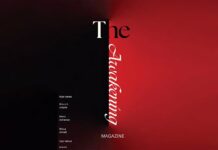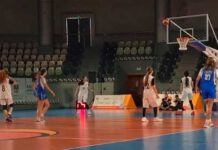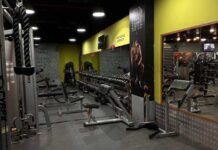By Ahmed Ammar
My father had just returned from his travel to London in 2002, during the second Intifada. It was an uneasy time for Palestinians and travelling was much more difficult than it used to be. My father waited for a taxi that would take him to Nablus from the Jordanian border. A van arrived and my father, along with another man, sat quietly waiting for the driver to leave the station.
The driver had left the van to smoke but returned to the vehicle when he saw the men enter. He turned to my father and the other man with a slight grin on his face.
“Ya hala, welcome, is that everyone?”
A taxi usually travels with 6-8 people, and sometimes more because it’s more profit for the driver, so when he saw that he only had two passengers that evening his grin quickly became a frown.
“We’ll wait for more people; there’s still some room,” the driver said calmly.
Before the driver could head out and smoke his cigarette with his friends, the other man in the car stood up and called for him.
“Hold on, where are you going? We were the last bus that came into the station. The next fleet is in two hours.”
The driver’s frown drooped even lower as he looked back at his passengers and said “then you’ll each have to pay at least double.”
My father had it with the driver’s unpleasant attitude. He was tired from the long day he had getting through the border. He got out and stormed towards the driver asking why he thinks he can get a few extra shekels off two weary passengers.
The driver held himself steady. He wanted to get his money’s worth, but after an argument about right and wrong the driver came to his senses. The men headed back into their seats and before the driver could turn the ignition my father asked him an important question.
“Is the main road clear today? We would like to reach the city before total darkness.”
“There is slight traffic and constant checkpoints. If you want to reach quicker then we should take the secondary road, around the settlements.”
The two passengers exchanged looks. They were uneasy about having to pass through settlement roads at night, but they figured it’s worth the risk if it’s faster.
For almost an hour the taxi was at a constant speed through the hills. The window was open letting in a slight cold breeze. The radio was playing a faint song by Umm Kulthum, and it felt like it is the perfect time for a nap. However, not half an hour through his nap, my father was awoken by the driver whispering loudly.
“Get up, get up, this is as far as I can go, take your bags and walk from here, walk up that hill and the next stop is just at the base on the other side.”
With all the confusion mixed with the unsettling mood everyone was in, my father quickly unloaded his suitcase and walked towards the hill, helping the other passenger with his bags. They hauled the bags up the hill on their own and the driver drove off as soon as the men set foot outside the van, leaving them alone in the dark.
Their legs got stuck between the tall grass and got scratched from all the spike plants. They dragged themselves and their luggage up the steep hill until they reached the top. However, before they could begin their descent a big flash of light shined over them. A light so bright they could not see where the source was. Then came the voice over the loud speaker. A muffled sentence in Hebrew, followed by a muffled one in broken Arabic–the light, the voice, and then the siren.
Seconds later the loud thunder of a tank engine was heard, and the clashing of jeep tires on the rocky grounds grew louder and louder as the convoy approached. In his head my father thought, this is it.
“Hands, hands, show me your hands, stand up and show me your hands.”
The officer got closer and ordered both men to open the bags. He told them to take out every item one by one and toss it to the side. Piece by piece my father took out his clothes, held them against the light and tossed them to the side. Then the lights went out.
“What are you doing here, where did you come from? The soldier shouted while having his gun aimed at my father’s chest.
“We came in a van from Jericho…. the driver told us this road is open.”
The officer looked stunned. He turned to the troops for a moment, then turned back and started yelling in Hebrew and Arabic.
“Do you have any idea about the lockdown? Ma ata mefager? This road has been closed for over a month. Your driver was a maniac for driving you. Let alone leaving you here. Tkach metumtam. He’s crazy.”
My father did not know much Hebrew at the time. He was having a hard time negotiating, so he asked to call my uncle who was fluent in both Russian and Hebrew, luckily most of the soldiers there were Russian so they asked him to come. After about an hour my uncle came to the scene, my father was handcuffed sitting next to the other man from the van. The soldiers talked with my uncle for a bit and agreed to let both men free after interrogation.
My uncle looked to my father in shock.
“Are you insane? You could have made my sister a widow and your children orphans today. Thank God the soldiers were in a good mood; otherwise, they would have shot you both in the dark.”
The three men got into their car and drove off. That was the end of my father’s treacherous journey back home. A very avoidable conflict caused by the arrogance of a greedy taxi driver could have costed him his life.


















